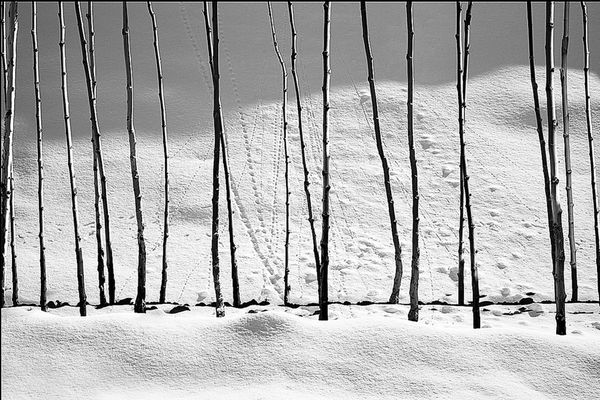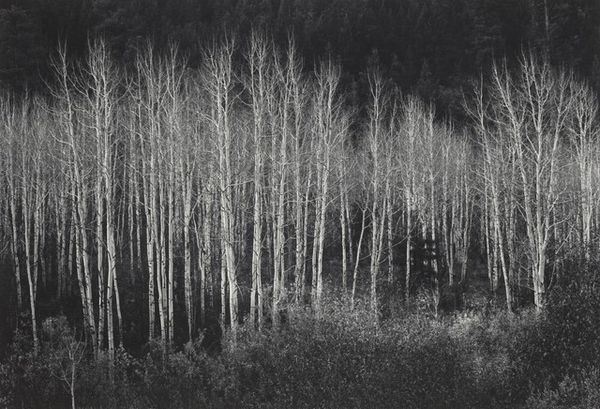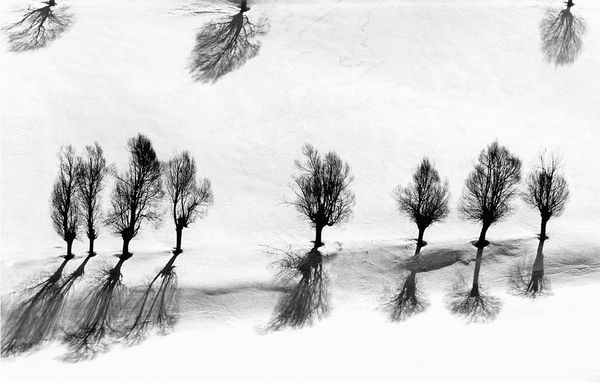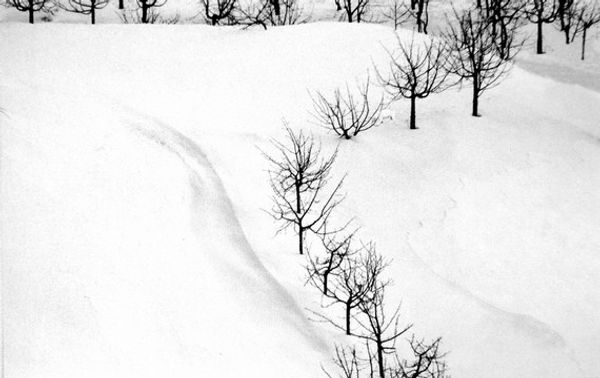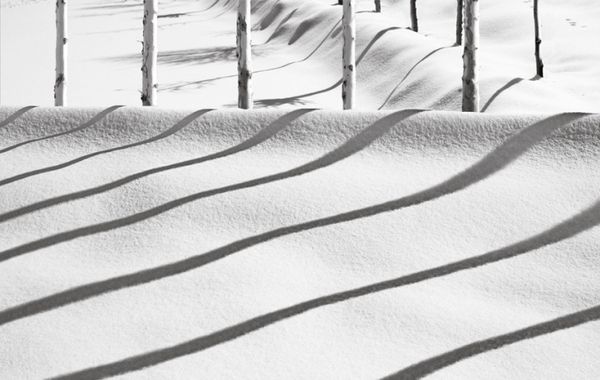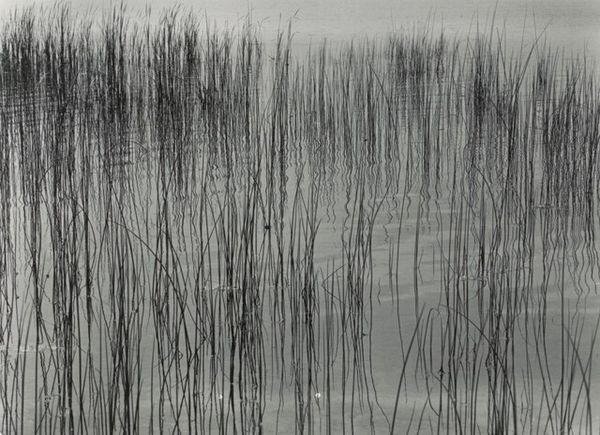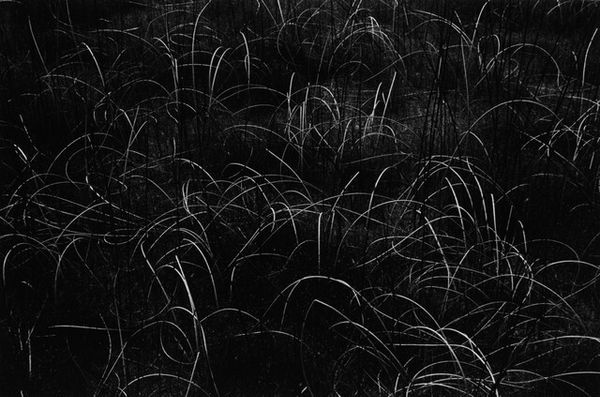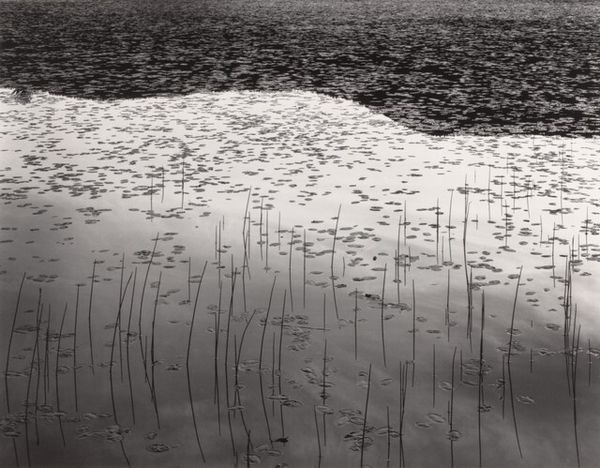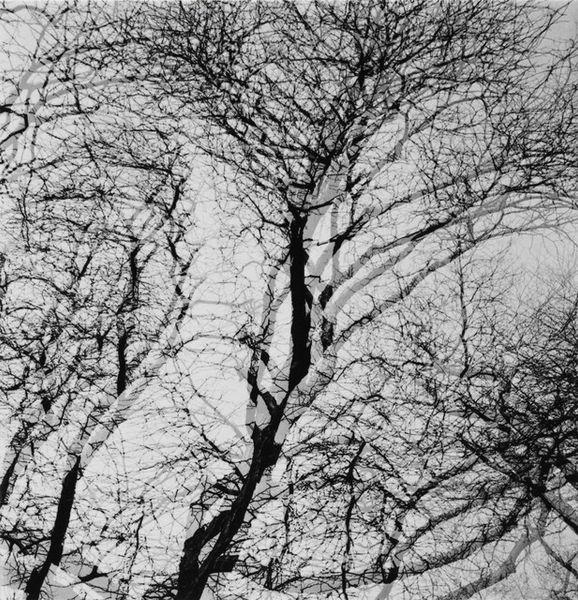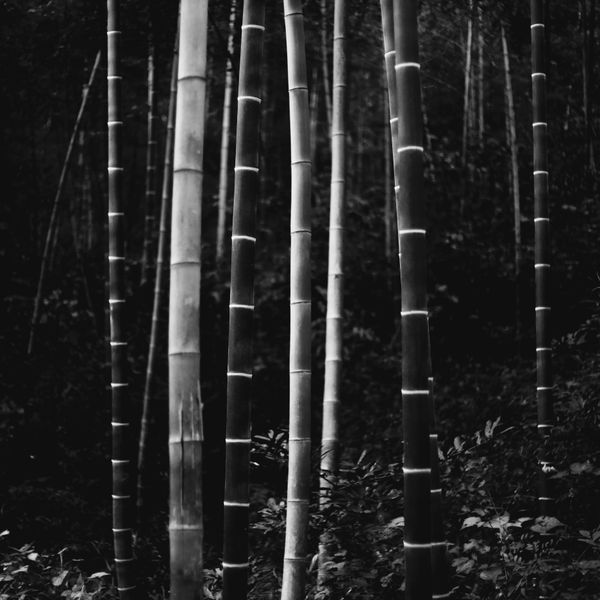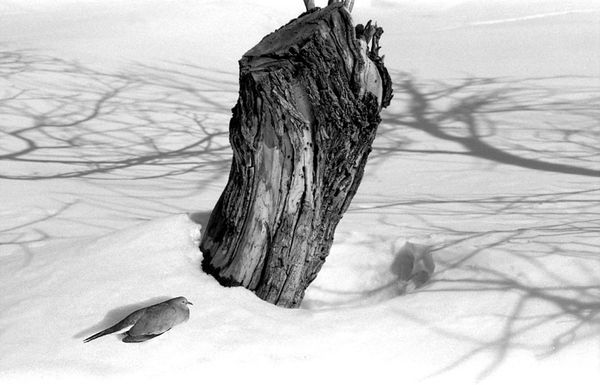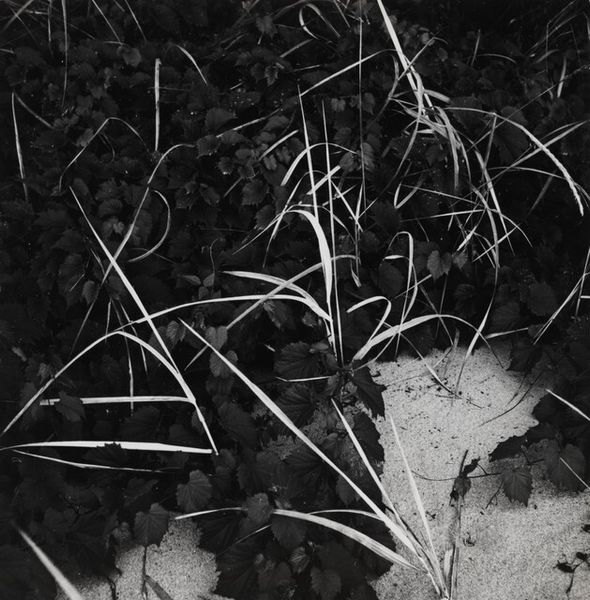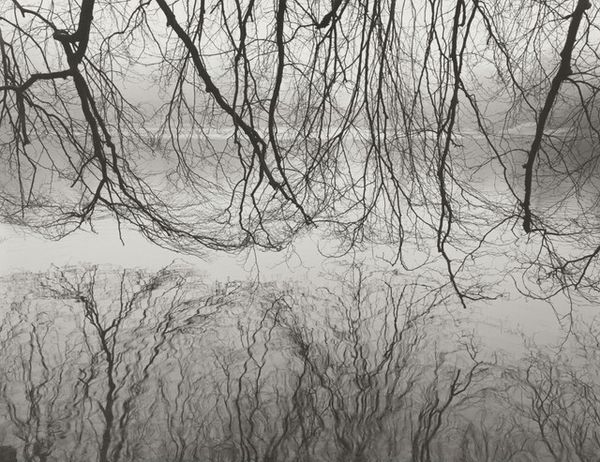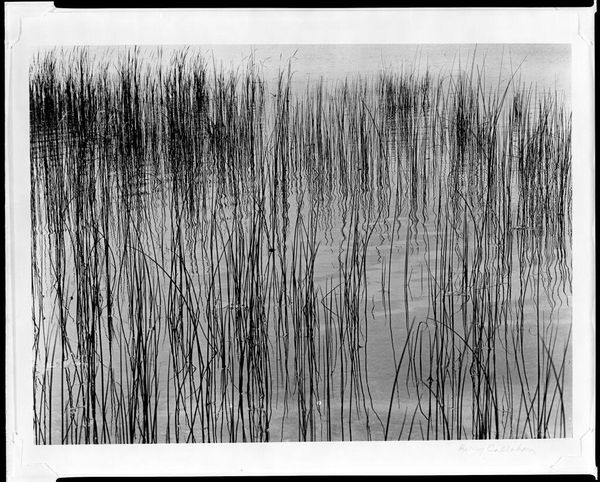
photography
#
tree
#
natural shape and form
#
natural formation
#
snowscape
#
countryside
#
grass
#
landscape
#
photography
#
plant
#
free-flowing form
#
abstract nature shot
#
seascape
#
coastline landscape
#
water
#
line
#
natural texture
#
monochrome
Copyright: Abbas Kiarostami,Fair Use
Editor: Here we have Abbas Kiarostami's photograph, "Snow White." It’s undated, a stark black and white image. It looks like maybe saplings in a snowy field? There's a kind of loneliness that I find immediately striking in its bare composition. What are your first impressions of this work? Curator: The title "Snow White" immediately throws me, almost sarcastically, into the political realm of visual storytelling. What societal narratives are being reflected or, more likely, undermined here? The title is loaded. Look at the stark simplicity—trees, snow, and a near-monochrome palette. How does this sparseness comment on the fairy tale's own themes, its familiar characters and moral certainties, especially in relation to Iranian culture? Editor: So, it's less about the literal imagery and more about the connotations of the title when viewed through a socio-political lens? I hadn’t thought about it that way. Curator: Exactly. Kiarostami, especially known for his role in Iranian cinema, often plays with visual simplicity to challenge our preconceived notions. The visual sparseness itself makes me think of a longing for truth – a questioning of narrative, specifically the Western narrative pushed in "Snow White". What constitutes "truth" within cultural and political narratives? Do you see any direct critiques? Editor: Now that you mention it, I do. Maybe the lack of vibrant colour subverts the idyllic innocence often associated with the fairytale? The lack of a literal fairytale element puts the audience's relationship with it front and center. Curator: Precisely. How does that directness position you as the viewer, as a consumer and interpreter of globalized stories? Is he commenting on the way Iran sees these Western tales? Editor: That's powerful. I was caught up in the simplicity, the visual starkness. But I see the loaded questions it raises now. It's not just a pretty landscape photo. Curator: Exactly. A reminder that art always operates within and reflects a wider social framework. We are both, ultimately, consumers and interpreters of the work as a function of its message. Editor: I'll definitely remember to look for those hidden contexts within art now. Thanks!
Comments
No comments
Be the first to comment and join the conversation on the ultimate creative platform.
